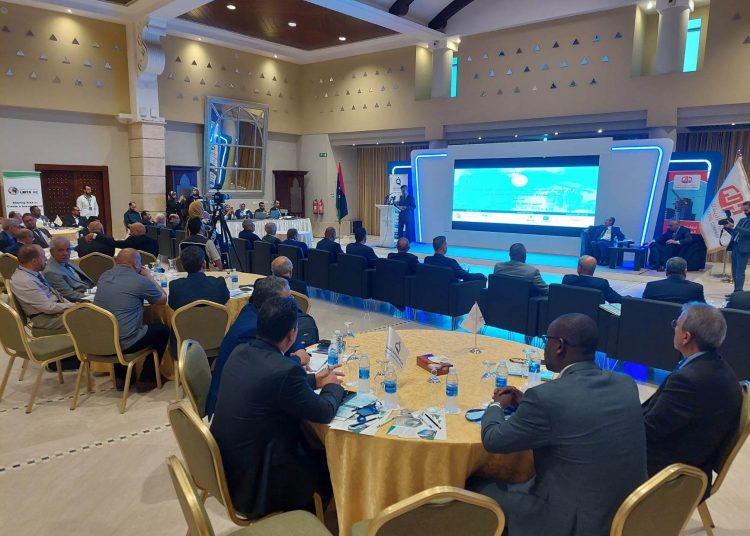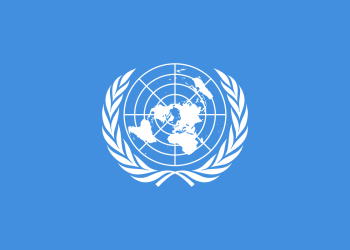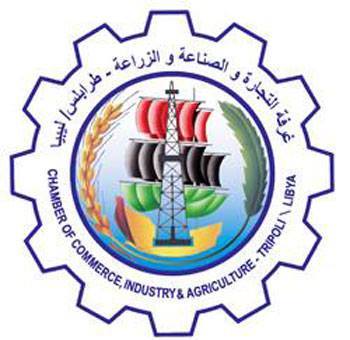At the conference held in Tripoli today it was agreed that insurance is an important part of the solution of reactivating Libya’s stalled projects.
The conference entitled ‘‘Stalled Projects in Libya: Reality and Challenges’’ under the banner ‘‘Insurance is a Pillar of the National Economy’’ was organised by a Libyan insurance company under the auspices of the Ministry of Economy and Trade and the Economic and Social Development Board (ESDB).
Making the keynote speech, the Ministry of Economy and Trade, Mohamed Hwej said reactivating Libya’s stalled projects will create jobs for youth and move the economic cycle forward. It will increase GDP and increase the incomes of citizens. It will also increase stability and security and sustainable development.
He said Libya needs to move forward and catch up with the rest of the world. It needs to move to a knowledge economy. The rest of the world has overtaken Libya and moved on.
Making a veiled attack on Libya’s political elite, of which he is a part, Hwej said ‘‘We need the will, the vision and management to reactivate Libya’s stalled projects’’.
The causes of Libya’s stalled projects
Several local and international speakers (in-person and virtually) then presented papers on the subject. These including a local state bank, the Housing and Infrastructure Board (HIB), the Privatisation and Investment Board (PIB), the Insurance Supervisory Board, the Undersecretary for International Cooperation of the Foreign Ministry, the Libyan Iron and Steel Company (LISCO), and insurance/reinsurance experts.
The main cause cited for the prevention of the implementation or completion of stalled projects was initially the 2011 war that ended the Qaddafi regime and the subsequent wars and militia clashes.
Damage, pillage and occupation of project sites and the subsequent security vacuum was seen as the symptom of these wars. For example, one speaker said his entity was awaiting the evacuation of their incomplete houses by the authorities.
Price changes, inflation and the devaluation of the Libyan dinar were cited as another cause of projects continuing to be stalled.
The lack of finance from the state was another factor since all the projects that were being discussed were directly or indirectly state projects financed from the state budget.
The demand by foreign contractors for price adjustments and their constant demands for compensation for losses before resuming their projects, was also cited as a factor.
With an estimated 23,000 stalled projects with an average completion rate of 50 percent, speakers agreed that there is a need to prioritise projects.
Prioritisation of projects
While it was agreed that the Libyan state will be unable to finance all its stalled projects, as, for example, it had only allocated LD 77.8 bn on projects between 2012 and 2022, the criteria for prioritisation was not discussed.
China is the biggest developer in Libya and the most communicative
Giving the perspective of the Foreign Ministry from the viewpoint of its negotiations with foreign states and companies, Deputy Foreign Minister Omar Al-Kitty said China is by far the biggest developer in Libya.
It has also been the most communicative with Libya regarding resumption of its stalled projects. This, he thought, was because most of the Chinese companies involved in projects in Libya are state owned or state-controlled companies. Therefore, the decision lies with the state. This makes it easier to communicate as there is just one Chinese interlocutor for Libya to deal with.
He said foreign companies need safety of their workers. They are also asking for the re drafting of their contracts. He said a committee had been formed to deal with stalled projects. He reminded that the issue of stalled projects involves other project implementation parties and is not the exclusive domain of the Foreign Ministry.
Factors for non-resumption of stalled projects cited to Foreign Ministry
The Deputy Foreign Minister revealed that the factors cited by foreign companies/foreign states for the non-resumption of their projects include:
- Political instability
- Constant change of Libyan Governments
- Wars
- Lack of a unified security apparatus
- The need for local guarantees
The Deputy Foreign Ministry revealed that, together with the Foreign Minister Najla Mangoush, he will be going on an Asian Tour. This will include the relevant entities involved with stalled projects. The tour will include China, Japan, South Korea and India.
Need for a unified plan and body to deal with stalled projects
The Deputy Foreign Minister said there is a need for a national plan for stalled projects. There needs to be a unified effort by one body and not, as is case now, several dispersed bodies to face foreign interlocutors.
He said foreign entities want to deal with a country or a state. They want stability of communication, not different governments, different political streams, and different personalities.
Finally, he revealed that while negotiating with the South Koreans on the Manmade River Project, they told him that ‘‘the Libyans don’t have loyalty to their achievements’’. They regarded the Man-made River project, he explained, as a great historical engineering project which they were proud to be involved in.
Force majeure should mean the end of old contracts
Speaking on the Libyan Iron and Steel Company’s (LISCO) experience, their speaker said all its stalled projects are with foreign companies. He said some foreign companies were prepared to give up compensation in return for LISCO overlooking their late implementation of their contracted project.
He said foreign companies want guarantee of payment but said any new contracts signed with foreign companies after 2011 should accept instability in Libya as a given – otherwise they should not have entered into a contract.
He said force majeure should end old contracts, otherwise contractors continuously call for compensation. He admitted that there is a need for banks to be a third party in contracts to guarantee payment for foreign contractors.
Insurance frameworks already exist for stalled projects across the world – Libya is not unique
Isaac Sahhar, Business Development Officer at London-based United Insurance Brokers said Libya is expected to spend about US$ 100 billion on projects by 2030. He said there are many stall projects across the world – including the economically advanced world. Stalled projects are not unique to Libya. he said insurance frameworks already exist in the international community for stalled projects so that there is no need to reinvent the wheel for Libya’s stalled projects.
Therefore, it is a matter of political know how and will to force projects in Libya to take out insurance. Insurance should be made compulsory for all project contracts. He said it is a matter of culture in countries such as Libya to not take out insurance. Insurance is, unfortunately and wrongly, seen as a waste of money.










